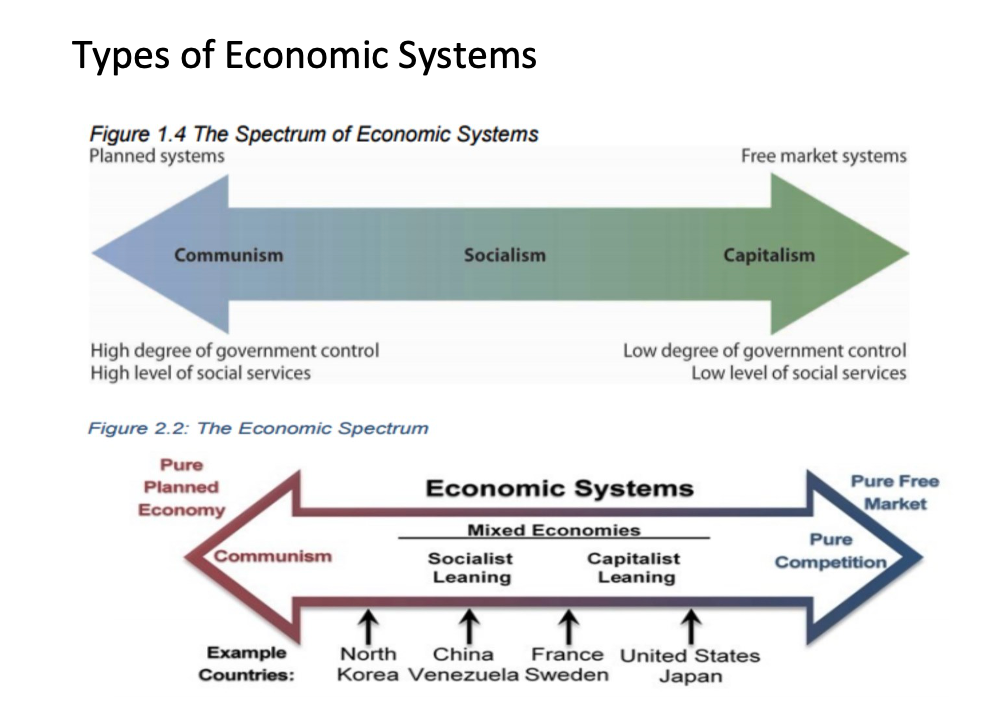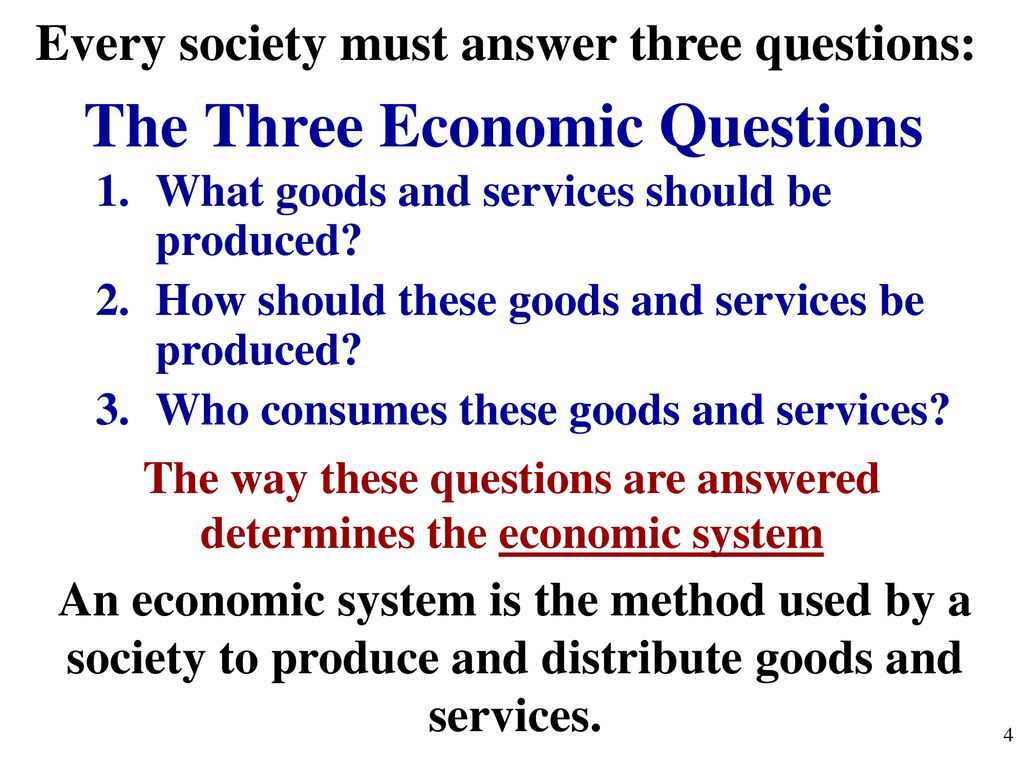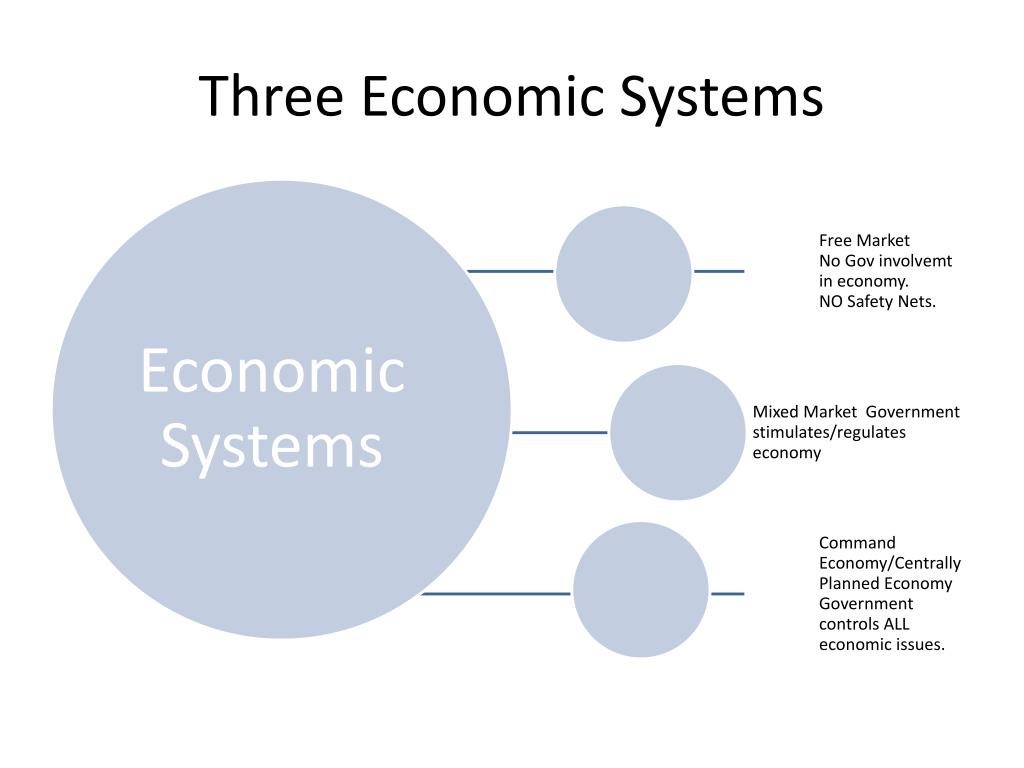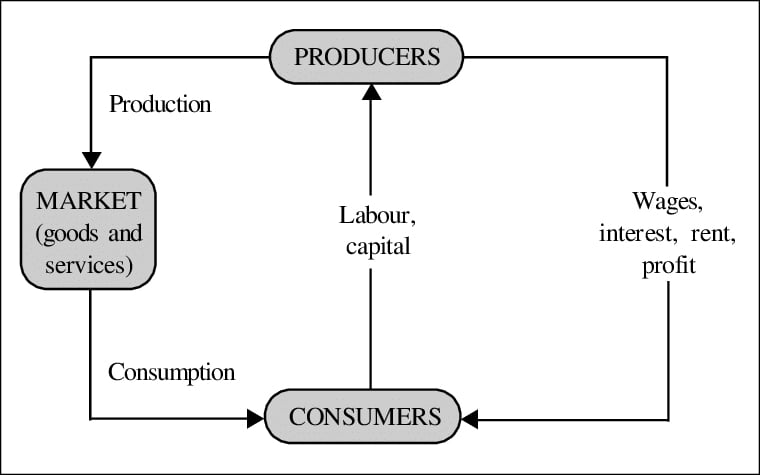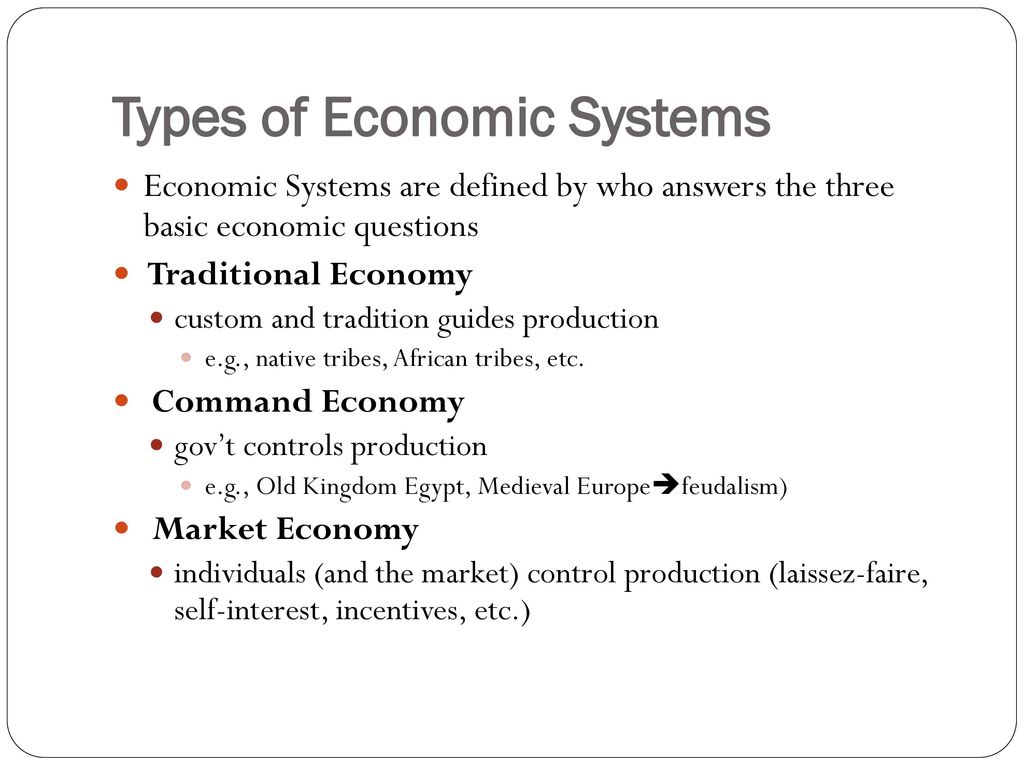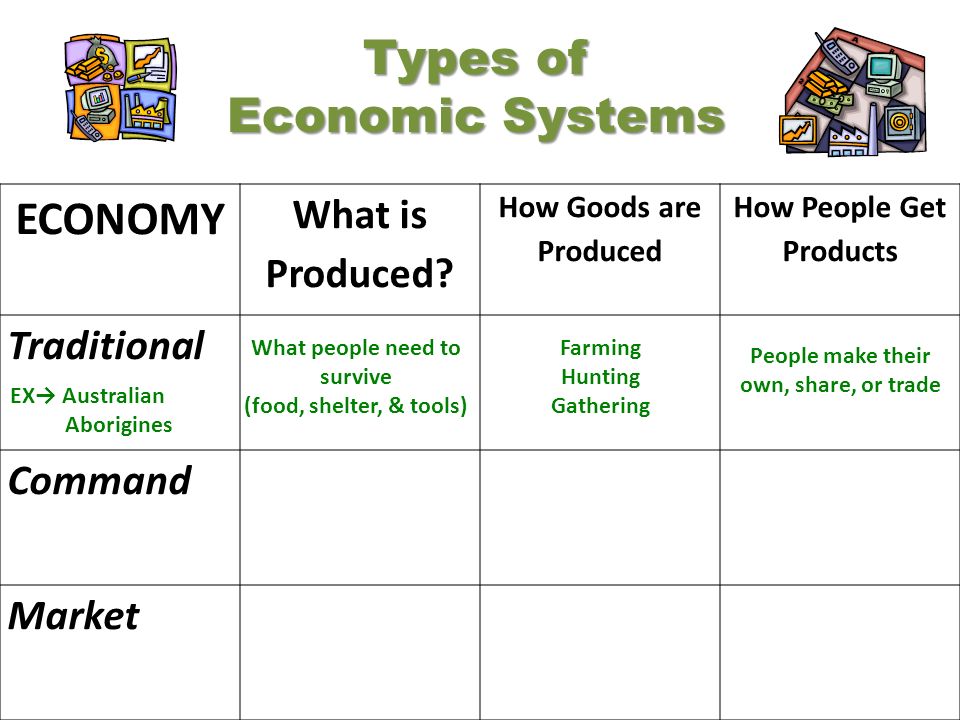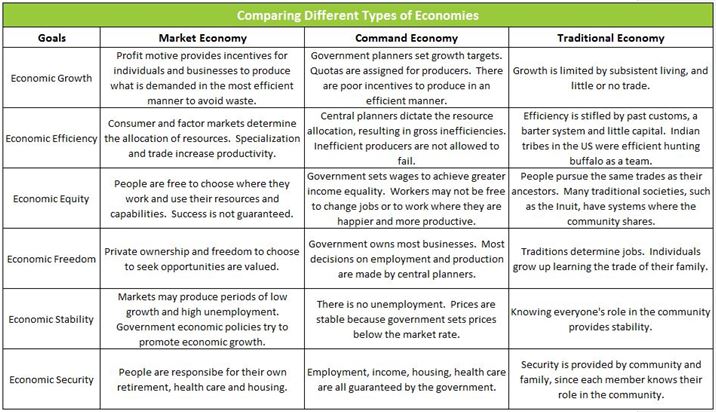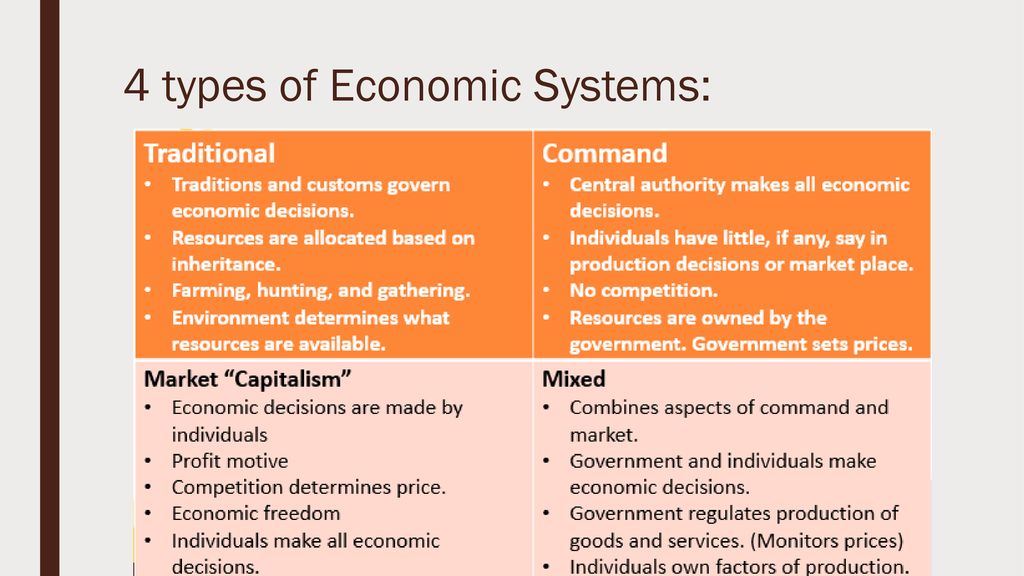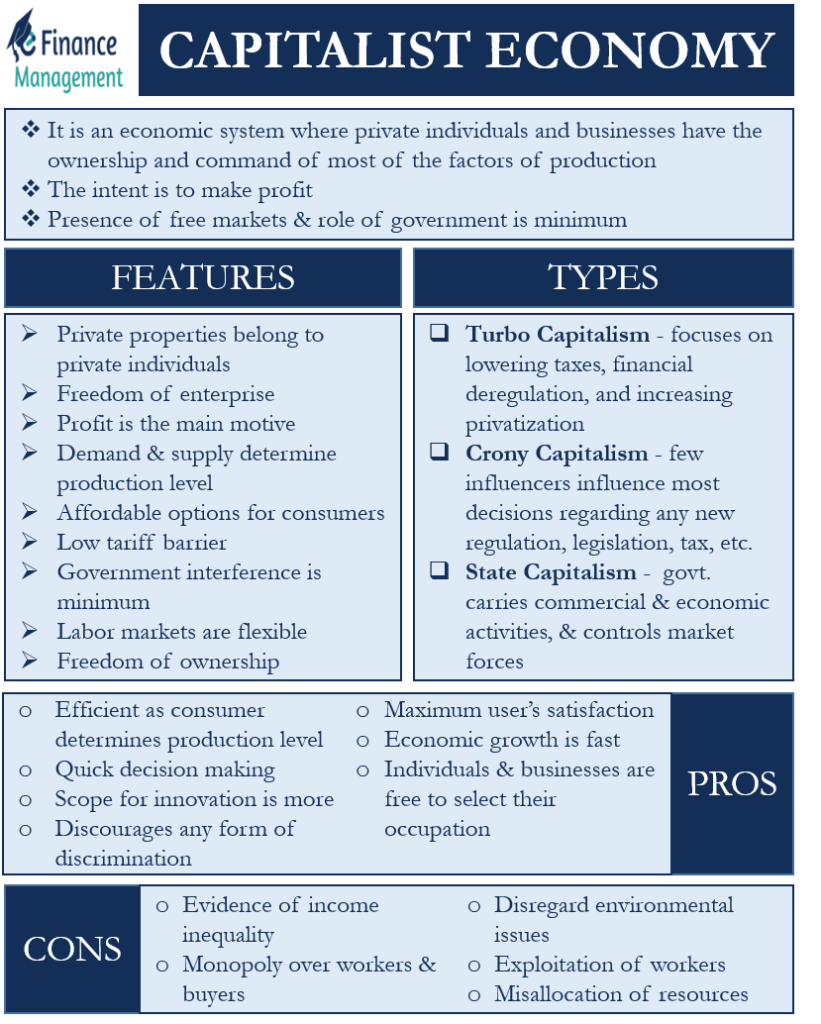Which Of The Following Is Determined By An Economic System
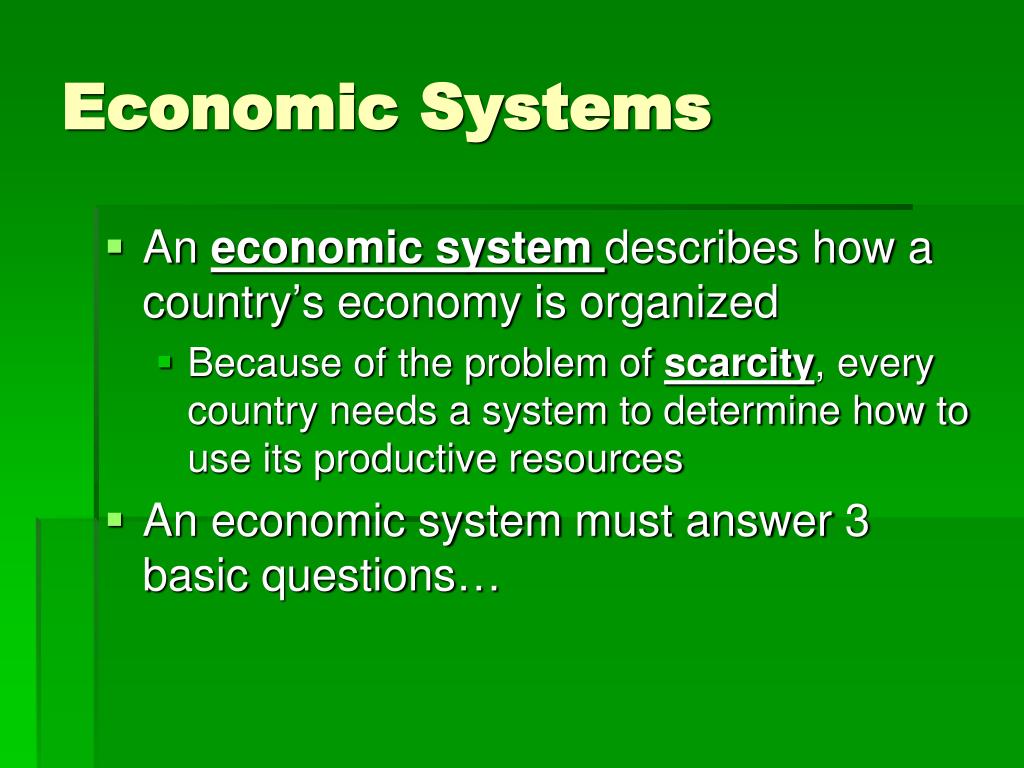
Imagine a bustling marketplace. Vendors hawk their wares, customers haggle over prices, and goods flow from hand to hand. This vibrant scene, a microcosm of a much larger structure, begs the question: what unseen forces orchestrate this dance of production, distribution, and consumption? What fundamental rules govern who gets what, and how?
At its core, an economic system determines how a society allocates its scarce resources. This encompasses what goods and services are produced, how they are produced, and for whom they are produced. It's the framework that dictates ownership, control, and decision-making within an economy.
Understanding Economic Systems
To grasp the importance of an economic system, one must understand its crucial role in shaping societies. These systems are not just abstract theories. They are the practical mechanisms that underpin everyday life.
The Fundamental Questions
Every economic system seeks to answer three fundamental questions: What to produce? How to produce? And for whom to produce?
The answers to these questions dictate the character of an economy. The answers determine whether it's a planned or a market-driven one.
The method of resource allocation forms the basic foundation of how an economic system is defined.
Types of Economic Systems
The world has seen a variety of economic systems throughout history. Each offers a unique approach to resource allocation. These systems range from traditional economies to modern mixed economies.
Traditional economies, often found in rural or indigenous communities, rely on customs, traditions, and historical precedents. Production methods and distribution patterns are passed down through generations. Change is slow, and economic roles are often clearly defined by social structures.
In a command economy, the government makes all economic decisions. The state owns and controls the means of production. Central planners determine what goods and services are produced, how they are produced, and who receives them. The former Soviet Union and North Korea are examples of command economies.
Market economies, on the other hand, are driven by supply and demand. Private individuals and businesses own the means of production. Prices are determined by the interaction of buyers and sellers in the marketplace. The United States and Japan are often cited as examples of market economies, though with government intervention.
Mixed economies, the most common type of economic system today, combine elements of both market and command economies. The government regulates certain industries. They provide social safety nets, and own essential services such as infrastructure and defense. Most developed countries, including Canada and Germany, operate under mixed economic systems.
What is Determined by the Economic System?
The choice of economic system profoundly impacts various aspects of society. From the level of economic freedom to the distribution of wealth, the system's influence is pervasive.
Resource Allocation is primarily determined by the economic system. The key decisions here are about what goods and services are produced. How resources like land, labor, and capital are distributed.
In a market economy, consumer demand and profit motives guide resource allocation. Producers respond to consumer preferences by producing goods and services that people are willing to buy. Resources flow towards the most profitable ventures.
In a command economy, central planners decide what to produce based on the state's priorities. This can lead to inefficiencies and shortages if the planners misjudge consumer needs or fail to allocate resources effectively.
Production Methods, these are also influenced by the economic system. This encompasses the technology and organization of production processes. In market economies, businesses are incentivized to adopt efficient production methods. They aim to minimize costs and maximize profits.
Command economies may lag behind in technological innovation. Central planners may be slow to adopt new technologies. This can lead to less efficient production processes.
Distribution of Income and Wealth is significantly affected by the type of economic system. Market economies tend to generate greater income inequality. Individuals with valuable skills and resources can accumulate wealth. They get rewarded in the marketplace.
Command economies, at least in theory, aim for a more equal distribution of income and wealth. However, in practice, they often lead to corruption and unequal access to resources for those connected to the ruling elite.
Economic Growth and Innovation is spurred by the economic system. Market economies create strong incentives for innovation and economic growth. Competition among businesses drives them to develop new products and improve existing ones. This fosters technological progress and increased productivity.
Command economies, while capable of achieving rapid growth in certain sectors, may stifle innovation due to a lack of competition. Central planning can be rigid. This hinders experimentation with new ideas.
Consumer Choice and Economic Freedom are also dependent on the system in place. Market economies offer consumers a wide range of choices. Individuals are free to spend their money as they see fit. Entrepreneurs are free to start businesses and pursue their own economic interests.
Command economies often restrict consumer choice. The government determines what goods and services are available. Individuals have limited economic freedom.
The Significance of Economic Systems
The choice of economic system is not merely a technical decision. It has profound ethical and social implications. It reflects a society's values and priorities.
The debate over economic systems often revolves around trade-offs between efficiency, equity, and freedom. Market economies may be more efficient at generating wealth. They can lead to greater income inequality. Command economies may prioritize equity but suffer from inefficiencies and a lack of economic freedom.
The optimal economic system for a particular society depends on its specific circumstances, values, and goals. There is no one-size-fits-all solution. Societies must weigh the benefits and drawbacks of different systems. They then adapt them to their unique needs.
Conclusion
The determination of what, how, and for whom to produce is the central task of any economic system. It reflects a society's fundamental choices. It reveals its values, and shapes its destiny.
Understanding the principles of different economic systems is crucial for informed citizenship. It is important for effective policymaking. By grappling with the complexities of resource allocation, we can work towards creating more prosperous, equitable, and just societies for all.


